Should Your Business Encrypt Every Desktop and Laptop?
by Stephanie Faris on Monday, March 14 6:00
Even if your offices are locked up at night, it s possible that someone could break in and steal the equipment you have inside. If any sensitive customer data resides on the hard drives of those computers, including through emails or contact lists, you ll likely be legally required to notify every customer who might be impacted by the breach.
Even more susceptible than your internal computers are the laptops your workers take into the field each day. You can set up your mobile devices with remote wipe capabilities, but what happens if one of your laptops is stolen? Even if your employees are diligent about setting complex passwords, criminals can get around that, gaining access to information you ve worked hard to protect.
What Is Encryption?
When you encrypt your hard drive, you turn your data into a secret code, readable only when a password is entered. This means that if someone intercepts your device, they ll be unable to retrieve the data that resides on its hard drive, even if they find a way around the device password. Encryption passwords have minimum requirements that are extremely complex, with the device locking after a small number of failed attempts.
Much of the communication consumers do online is encrypted, especially when information such as credit card numbers is being shared. However, some businesses encrypt every device s entire hard drive when this may not be necessary. In many cases, it will suffice to simply encrypt the folder where documents will be stored. If you choose to do things this way, though, it s important to ensure all sensitive information is going into that folder. One stray file could cause serious trouble for your business.
How to Encrypt
The good news is that there are multiple tools your business can use to encrypt your desktops and laptops. Many of these sources are free. Here are some of the most popular:
- BitLocker For Microsoft customers with operating systems that are Windows Vista or newer, BitLocker is likely the best option. The software is built into the Pro and Enterprise versions of those operating systems.
- Disk Utility Mac users have a built-in tool called Disk Utility, which lets you create password-protected folders within the Mac OS. You can also use FileVault to encrypt your entire Home folder, but many Mac enthusiasts feel this is overkill, since you ll only need to protect the sensitive files on your computer, not the entire drive.
- VeraCrypt A few years ago, TrueCrypt was the go-to tool for open-source encryption. However, the founders abandoned the project due to security issues. VeraCrypt is a similar free service based on TrueCrypt version 7.1a. The founders resolved the security issues found with TrueCrypt. This software has both Windows and Mac OS versions.
Your business s laptops stand a greater chance of falling into the wrong hands than your desktops. However, the more devices you encrypt within your organization, the safer your business will be from a reputation-damaging data breach. With so many free encryption services available, IT teams need only to find the right one for their devices and go through the steps to make sure every device has encryption in place.
